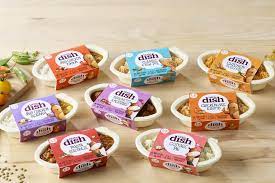Empowering Health and Wellness: The Impact of a Healthcare PR Agency
The Role of a Healthcare PR Agency in Promoting Health and Wellness
Healthcare Public Relations (PR) agencies play a crucial role in promoting health and wellness initiatives, raising awareness about healthcare issues, and shaping public perceptions of healthcare organisations. These agencies specialise in developing strategic communication campaigns that effectively communicate key messages to target audiences.
One of the primary functions of a healthcare PR agency is to help healthcare providers, pharmaceutical companies, medical device manufacturers, and other healthcare-related organisations build and maintain a positive reputation. By leveraging various communication channels such as media relations, social media, and content marketing, these agencies work to enhance brand visibility and credibility.
Healthcare PR agencies also play a vital role in crisis management. In the event of a healthcare crisis or negative publicity, these agencies step in to manage communication effectively, mitigate reputational damage, and restore public trust. Their expertise in handling sensitive issues allows them to navigate complex situations with professionalism and transparency.
Furthermore, healthcare PR agencies are instrumental in promoting health education and awareness campaigns. They collaborate with healthcare professionals, advocacy groups, and government organisations to disseminate important information about disease prevention, treatment options, and public health initiatives. By crafting compelling narratives and engaging content, these agencies help drive positive behavioural change among target audiences.
In today’s digital age, healthcare PR agencies also play a significant role in digital marketing strategies. They utilise online platforms to reach wider audiences, engage with stakeholders in real-time, and monitor online conversations about healthcare topics. By harnessing the power of social media influencers, online communities, and digital advertising tools, these agencies amplify their clients’ messages across various digital channels.
In conclusion, the role of a healthcare PR agency is multifaceted and essential in promoting health and wellness on a global scale. Through strategic communication planning, reputation management, crisis response strategies, health education campaigns, and digital marketing initiatives, these agencies help drive positive outcomes for their clients while contributing to the overall well-being of society.
Top 5 Essential Tips for Effective Healthcare PR Agency Success
- Understand the healthcare industry regulations and guidelines to ensure compliance in all PR activities.
- Build strong relationships with key stakeholders such as healthcare professionals, patients, and media outlets.
- Stay updated on the latest healthcare trends, research, and developments to provide accurate information in PR campaigns.
- Tailor your messaging to resonate with your target audience in the healthcare sector, using clear and concise language.
- Monitor and measure the impact of your PR efforts in the healthcare industry to continuously improve strategies and outcomes.
Understand the healthcare industry regulations and guidelines to ensure compliance in all PR activities.
It is crucial for healthcare PR agencies to have a deep understanding of the industry regulations and guidelines to ensure compliance in all public relations activities. By staying knowledgeable about the legal framework governing healthcare communications, agencies can navigate potential pitfalls and risks effectively. Adhering to regulatory standards not only safeguards the reputation of healthcare organisations but also builds trust with stakeholders and the public. Compliance with industry regulations demonstrates a commitment to ethical practices and responsible communication, ultimately contributing to the success and credibility of healthcare PR initiatives.
Build strong relationships with key stakeholders such as healthcare professionals, patients, and media outlets.
Building strong relationships with key stakeholders such as healthcare professionals, patients, and media outlets is essential for a healthcare PR agency to effectively promote health and wellness initiatives. By establishing trust and open lines of communication with healthcare professionals, the agency can access valuable insights and expertise to craft compelling narratives and campaigns. Engaging with patients allows the agency to understand their needs and concerns, tailoring messaging that resonates with the target audience. Moreover, fostering relationships with media outlets enables the agency to secure positive coverage and amplify key messages to a wider audience, ultimately contributing to the success of healthcare communication efforts.
Stay updated on the latest healthcare trends, research, and developments to provide accurate information in PR campaigns.
It is crucial for healthcare PR agencies to stay updated on the latest healthcare trends, research, and developments to ensure that they provide accurate and relevant information in their PR campaigns. By staying informed about emerging technologies, treatment options, regulatory changes, and public health initiatives, these agencies can create campaigns that resonate with target audiences and demonstrate their expertise in the ever-evolving healthcare landscape. Keeping abreast of industry advancements allows healthcare PR professionals to craft compelling narratives that educate, inspire trust, and drive positive outcomes for their clients.
Tailor your messaging to resonate with your target audience in the healthcare sector, using clear and concise language.
To maximise the effectiveness of your healthcare PR agency efforts, it is crucial to tailor your messaging to resonate with your specific target audience within the healthcare sector. Using clear and concise language ensures that your key messages are easily understood and impactful. By understanding the unique needs, challenges, and preferences of your audience, you can craft communication strategies that are relevant and engaging, ultimately leading to stronger connections and positive outcomes in the healthcare industry.
Monitor and measure the impact of your PR efforts in the healthcare industry to continuously improve strategies and outcomes.
Monitoring and measuring the impact of PR efforts in the healthcare industry is crucial for ensuring the effectiveness of communication strategies and achieving desired outcomes. By tracking key performance indicators, such as media coverage, audience engagement, and brand perception, healthcare PR agencies can gather valuable insights that inform future decision-making and help refine their approach. Continuous evaluation allows for adjustments to be made in real-time, leading to more targeted and impactful campaigns that resonate with stakeholders and drive positive results in the dynamic healthcare landscape.




